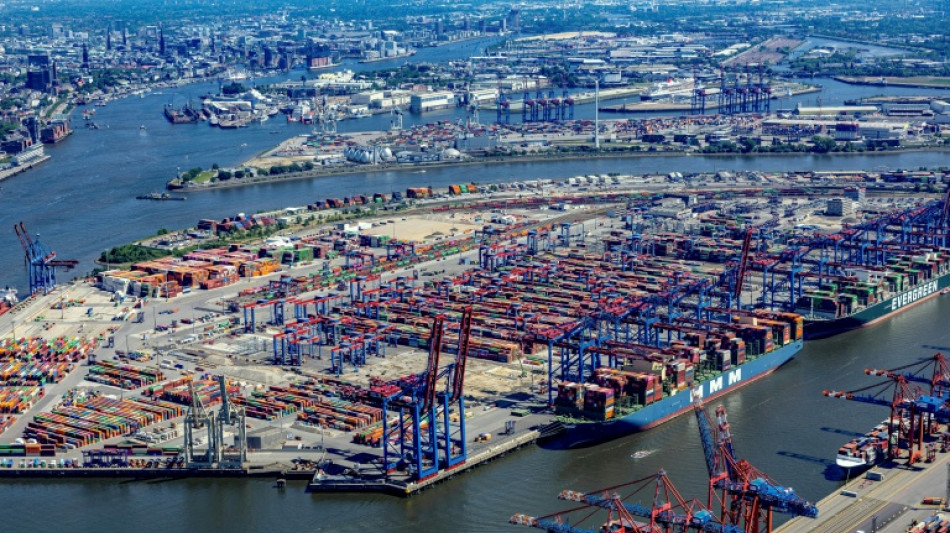
-
 UN declares famine in Gaza, blames Israel
UN declares famine in Gaza, blames Israel
-
Australian Rules player body urges 'united approach' after homophobic slur

-
 Under a drone canopy, Ukraine army medics rely on robots and luck
Under a drone canopy, Ukraine army medics rely on robots and luck
-
India walks back order to clear Delhi of stray dogs

-
 Breetzke, Stubbs star as South Africa post 277 in 2nd Australia ODI
Breetzke, Stubbs star as South Africa post 277 in 2nd Australia ODI
-
Pressure on Merz as Trump tariffs hit German economy
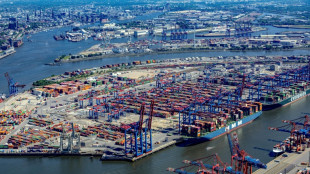
-
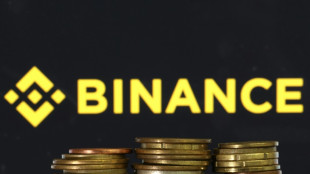 Australia orders audit of crypto trading giant Binance
Australia orders audit of crypto trading giant Binance
-
Israel vows to destroy Gaza City if Hamas doesn't disarm, free hostages

-
 Alonso and Real Madrid look for more fluidity on trip to Oviedo
Alonso and Real Madrid look for more fluidity on trip to Oviedo
-
Bumpy skies: How climate change increases air turbulence
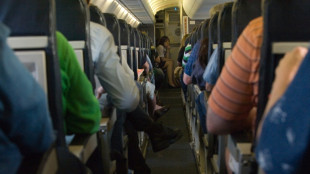
-
 Chinese tiger, French berets and space cannons mark Gamescom 2025
Chinese tiger, French berets and space cannons mark Gamescom 2025
-
US judge orders dismantling of Trump's 'Alligator Alcatraz'
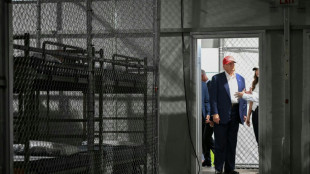
-
 Evicted from their forests, Kenyan hunter-gatherers fight for their rights
Evicted from their forests, Kenyan hunter-gatherers fight for their rights
-
Japan city proposes two-hour daily smartphone limit

-
 A rise in the mountains as Vuelta a Espana cranks up the climbing
A rise in the mountains as Vuelta a Espana cranks up the climbing
-
Thai ex-PM Thaksin acquitted of royal insult charges

-
 Japanese amateur boxer in intensive care after latest incident
Japanese amateur boxer in intensive care after latest incident
-
US wine sellers left in limbo despite EU tariff deal

-
 Erik Menendez denied parole, decades after parents' murders
Erik Menendez denied parole, decades after parents' murders
-
Under Trump pressure, US Fed chief to walk tightrope in speech
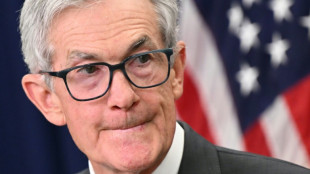
-
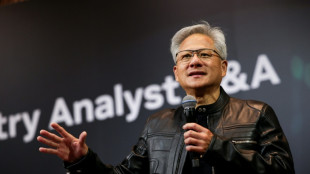 Nvidia chief says H20 chip shipments to China not a security concern
Nvidia chief says H20 chip shipments to China not a security concern
-
North Korea's Kim decorates troops who fought for Russia against Ukraine

-
 Two separate guerilla attacks kill 18 in Colombia
Two separate guerilla attacks kill 18 in Colombia
-
Rice prices up 91 pct year-on-year in Japan

-
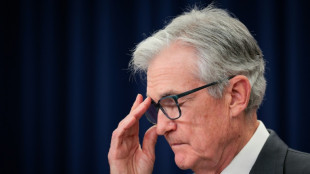 Asian markets tick up as investors eye Jackson Hole meeting
Asian markets tick up as investors eye Jackson Hole meeting
-
De Bruyne leads Napoli's Serie A title defence as Lukaku injury causes concern

-
 Pollard, Albornoz hailed as key Rugby Championship clashes loom
Pollard, Albornoz hailed as key Rugby Championship clashes loom
-
Marseille plunged into crisis with season just getting started

-
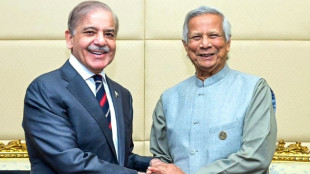 Pakistan woos old rival Bangladesh, as India watches on
Pakistan woos old rival Bangladesh, as India watches on
-
Documents show New Zealand unease over Chinese warships in South Pacific
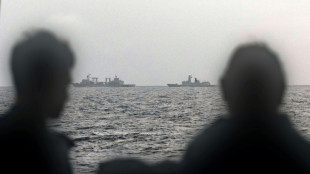
-
 $346 mn US-Nigeria arms deal sets rights groups on edge
$346 mn US-Nigeria arms deal sets rights groups on edge
-
Got the scoop: Bear takes over California ice cream shop

-
 Rested but rusty Djokovic plots US Open ambush
Rested but rusty Djokovic plots US Open ambush
-
'Tough lessons' helping Sabalenka ahead of US Open defence

-
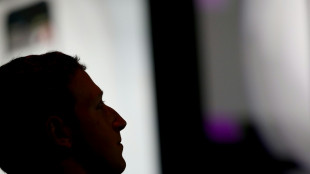 Meta makes huge cloud computing deal with Google: source
Meta makes huge cloud computing deal with Google: source
-
Blockbuster 'Sincaraz' rivalry ready to light up US Open

-
 Less tax, more luxury: millionaires flock to Dubai
Less tax, more luxury: millionaires flock to Dubai
-
Akie Iwai leads, Canadian teen Deng in hunt at LPGA Canadian Open

-
 Chile, Argentina football fans trade blame over stadium violence
Chile, Argentina football fans trade blame over stadium violence
-
Palestinian camps in Lebanon begin disarming

-
 Epique Realty Champions Future Leaders, Awarding Inaugural Scholarships to Four Exceptional Students
Epique Realty Champions Future Leaders, Awarding Inaugural Scholarships to Four Exceptional Students
-
Top Platform for Women in Tech Leadership and Career Change Into Tech: Esther Speaks Recognised Globally
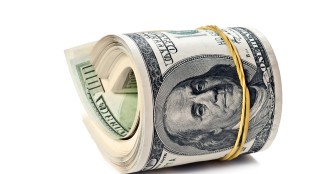
-
 American Critical Minerals Announces Completion of Warrant Exercise Incentive Program
American Critical Minerals Announces Completion of Warrant Exercise Incentive Program
-
Encision Completes $500,000 Private Placement

-
 Epique Realty Unveils Powerful Free Tool for Agents Epique Elevate Powered by HouseAmp
Epique Realty Unveils Powerful Free Tool for Agents Epique Elevate Powered by HouseAmp
-
Xebra Brands Announces Issuance of Cease Trade Order

-
 Five dead as 'thunderous' bomb attack hits Colombian city
Five dead as 'thunderous' bomb attack hits Colombian city
-
Henley leads PGA Tour Championship with Scheffler in pursuit

-
 US Supreme Court allows cuts in NIH diversity research grants
US Supreme Court allows cuts in NIH diversity research grants
-
Why fan violence still sullies Latin American football


Pressure on Merz as Trump tariffs hit German economy
Germany's economy shrank more than expected in the second quarter as US tariffs battered exports, official data showed Friday, ramping up pressure on Chancellor Friedrich Merz to turn Europe's top economy around.
Gross domestic product (GDP) fell 0.3 percent from the previous quarter, federal statistics agency Destatis said, as it revised down an earlier July estimate of a drop of just 0.1 percent.
Goods exports fell 0.6 percent and spending on machinery and equipment fell 1.9 percent, underlying the difficulties faced by the country's manufacturers in the first full quarter after increased US tariffs took effect.
The United States is a Germany's largest trade partner, taking about 10 percent of its exports, and a key destination for products from cars to chemicals.
Household consumption came out lower than initial data had suggested while the manufacturing and construction sectors had also performed worse than expected.
Shock data released earlier in August showed that German industrial production had in June plunged to its lowest level since the pandemic in 2020.
- Trade tensions -
Fixing the eurozone's traditional export powerhouse has been a key priority for Merz, with the economy battered in recent years by high energy costs and fierce Chinese competition.
In July, Destatis said that German GDP fell 0.9 percent in 2023 and 0.5 percent in 2024, reporting that the contraction in those years was even worse than previously reported.
Plans to spend hundreds of billions of euros on infrastructure upgrades and rearmament -- combined with a series of brighter data releases since the start of the year -- had raised hopes that the worst might be over.
German business morale rose to its highest level in July after seven straight increases, while think tanks including the respected DIW institute have revised growth forecasts up for 2025 and 2026.
But ING bank analyst Carsten Brzeski said today's data suggested that increased optimism was a result not of a sustained upswing but rather temporary front-loading as US customers rushed to get orders in before new tariffs took effect.
"Optimism alone doesn't bring back growth," he said. "A full reversal of previous US front-loading effects has pushed the German economy back into recessionary territory."
Though the United States and European Union clinched a deal at the end of July to avert a full-blown trade war, ongoing uncertainty around its implementation is hitting German exporters.
The two sides released details of the deal on Thursday, with most EU goods facing a 15-percent tariff.
Cars, however, are still getting a 27.5 percent rate, with the tariff dropping to 15 percent only once the EU introduces legislation to eliminate its own levies on US industrial products.
"It is hard to see how the export-dependent German economy will be able to get out of seemingly never-ending stagnation," Brzeski said.
- Budget troubles -
Social Democrat finance minister Lars Klingbeil has meanwhile floated the possibility of tax rises to plug a 30 billion euro ($34.8 billion) hole in 2027 spending plans, sparking swift rebukes from his conservative coalition partners.
Talk of tax rises threatened to act as an extra brake on growth, Brzeski said, blunting the impact of the bumper infrastructure- and defence-spending plans.
"The longer a debate on potential austerity measures lasts, the higher the risk that households and companies will hold back spending and investment decisions," he said.
"The German economy has made itself too comfortable in stagnation, and it could take until next year before a more substantial recovery starts to unfold."
T.Ward--AMWN